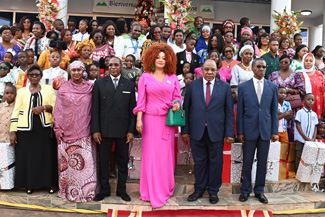Cameroon's economic needs and potentials are such that there are a great variety of good investment sectors. Amongst other can be cited:
- The transformation of materials which leads to the production of a finished or semi finished goods;
- Extraction and transformation of mineral resources;
- The transformation of hydrocarbons;
- Forest exploitation assorted with the transformation of wood;
- Agricultural production;
- Production;
- Stock breeding;
- Industrial and local fishing;
- Transformation of agricultural products, animal or halieutic;
- Stocking and conservation activities of food products;
- Making of necessary materials for public buildings;
- Maintenance of industrial equipment focused on the making on spore ports;
- Naval repairs, technological research activities and the management of data;
- Hospitals and pharmaceutical laboratories;
- Trial, analysis and control of raw material laboratories for finished or semi finished products used or produced by the industry;
- Touristic restoration areas when they are integrated in a touristic pack or implanted in a touristic site known by touristic administration.
Favourable conditions to investment
The economy has enjoy a growth rate of 5% for some years, which has to increase;
- Democratic institutions and the political stability make of Cameroon a country where the risk concerning investment of minimal;
- Its geographical location between west and central Africa, gives it a unique statistic position in terms of trade exchanges. It gives access to several central African countries and some regions of Nigeria;
- Its extension of 1200km gives it a great variety of natural potentials;
- It has abundant and qualified labour, which is cheap and endowed with a great adaptation and initiative capacity which is indispensable for companies;
- Cameroon has a diversified industrial fabric in expansion, presenting a permanent network of sub contracts;
- It has a regulatory and legislative frame which gives freedom to invest and the free transfer of industrial and commercial benefits as well as salaries;
- It has numerous natural resources (petroleum, gas, bauxite, iron, nickel, wood) and agricultural products (cocoa, coffee, cotton, banana, hevea, palm oil, pineapple);
- It has a vast privatisation programme of public and Para public companies whose list is detailed in the chapter of privatisation.



















